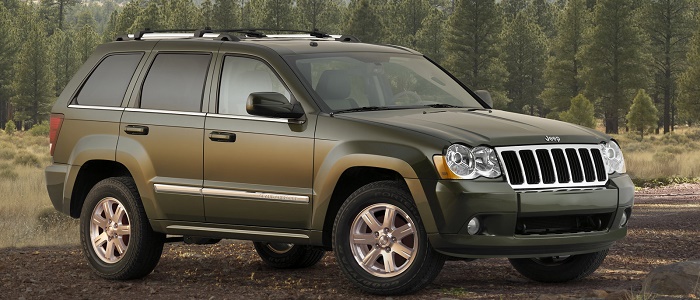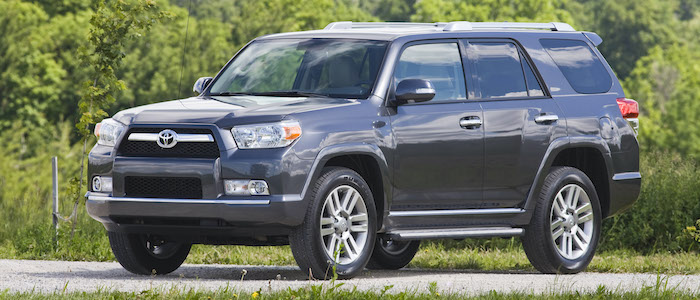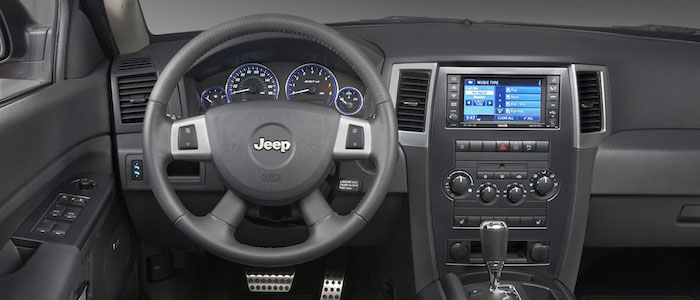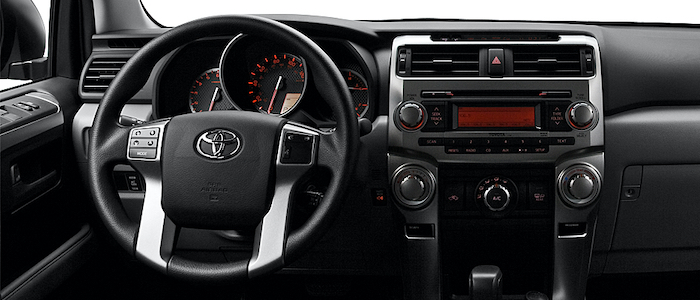Compare two cars
Compare any two cars and get our Virtual Adviser™ opinion
Dimensons & Outlines
Check vehicle history
Engine
4.0 1GR-FE Dual VVT-i
Performance (manual gearbox)
Performance (automatic gearbox)
Expenses
Virtual Adviser's™ opinion
Well, these are two pretty similar cars we have here! It's only details that could potentially make the difference. Considering they both belong to the suv segment and utilize the same 5-door suv body style and the 4 x 4 wheel drive system, it all comes up to the specific petrol engine choice they offer. The first one has a Chrysler-engineered powertrain under the hood, a 8-cylinder, 16-valves 425hp unit, while the other one gets its power and torque from a 6-cylinder, 24-valves 272hp engine designed by Toyota.
SafetyThe fact that the Jeep got tested by the European New Car Assessment Programme (Euro NCAP), while the other contender didn't, offers a slight advantage, as the 4-star rating is better than none. Moving further on, let's take a closer look at some additional safety-related facts. Both vehicles belong to the suv segment, which is generally a very good thing safety-wise, still it doesn't help us solve our dilemma, does it? Furthermore, when it comes to weight, a factor that most people underestimate, the Japanese car offers a marginal difference of 1% more metal.
ReliabilityReliability is not the best thing to consider on the make level, but it is worth mentioning that Toyota as a brand displays somewhat better results, at least on all of the models level. That's the official data, while our visitors describe reliability of Jeep with an average rating of 4.0, and models under the Toyota badge with 4.6 out of 5. Unfortunatelly, I don't have enough insight that would allow me to comment in more details on the specific models level. Above it all, drivers of cars with the same engine as the American car rank it on average as 3.0 out of 5, exactly the same as the other one.
Performance & Fuel economyJeep is way more agile, reaching 100km/h in 3.1 seconds less than its competitor. In addition to that it accelerates all the way to 245 kilometers per hour, 55km/h more than the other car. When it comes to fuel economy an obvious choice would be the Japanese car, averaging around 12.3 liters of fuel per 100 kilometers (23 mpg), in combined cycle. That's 31% difference compared to the American car!
Verdict
Toyota appears just a bit more reliable, although the difference is truly marginal. The most important thing when deciding between any two vehicles should always be safety, both passive and active. In my opinion, everything taken into account, the American car offers much better overall protection, which launches it ahead of the other contender. It all continues in the same direction, with Jeep outracing its opponent in any situation possible, making it better choice for boy racers. It does come at a cost though, and that's the fuel consumption... No mistake, whatever you decide here, but I'd still go for the Jeep. Nevertheless, let's not forget that people have different preferences and needs, so what really counts is your personal feel. I'm only here to help. Also, you could use the oportunity to find out which car, everything taken into account, would be the perfect choice for you in the eyes of the virtual adviser™, among more than 12.000 different ones in our database.


































